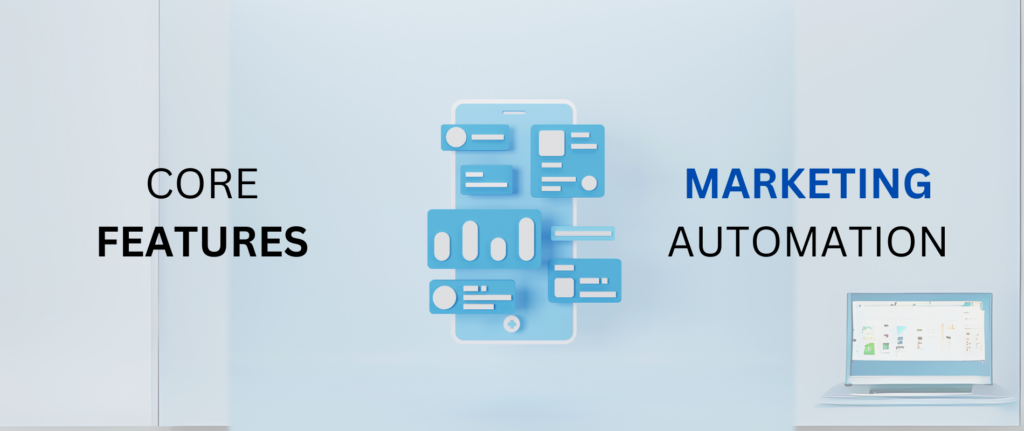In today’s fast-paced digital landscape, marketers face numerous challenges in reaching their target audience effectively. With the growing need for personalized and timely interactions, manual execution of marketing campaigns becomes inconvenient and time-consuming. This is where a marketing automation platform comes into play. A marketing automation platform is a powerful tool that enables marketers to streamline their efforts, automate repetitive tasks, and drive results. In this article, we will explore the functionalities and benefits of marketing automation platform and understand how it can transform your marketing strategy.
What Is a Marketing Automation Platform?
Marketing automation refers to the use of software platforms to automate repetitive marketing tasks, such as email marketing, social media management, lead nurturing, customer segmentation, and more. It allows businesses to create personalized, targeted campaigns based on customer behavior and preferences, ultimately enhancing the overall marketing strategy.
Role of Technology in Marketing Automation:
The role of technology in marketing automation is paramount, as it serves as the foundation for executing and optimizing marketing campaigns efficiently and effectively. Technology empowers marketers to automate various processes, streamline workflows, and leverage data-driven insights to drive better results. It plays a crucial role in enabling the automation of repetitive tasks, facilitating data collection and analysis, personalizing customer interactions, and measuring campaign performance. By harnessing the power of technology, marketing automation platforms empower businesses to enhance productivity, improve customer engagement, and achieve their marketing goals with greater precision and scalability.
Core Features of a Marketing Automation Platform

A marketing automation platform typically encompasses a range of features designed to streamline marketing processes and drive meaningful interactions with customers. Some key features include:
Email Marketing Automation:
Marketing automation platforms enable businesses to create and automate email campaigns, from sending personalized welcome emails to nurturing leads and engaging with customers. These platforms provide tools for designing visually appealing emails, segmenting audiences, and tracking email performance.
Lead Management and Nurturing:
Marketing automation platforms help businesses capture and manage leads effectively. They facilitate lead scoring, lead segmentation, and automated lead nurturing workflows. By analyzing customer behavior and engagement, businesses can deliver tailored content and targeted offers to move leads through the sales funnel.
Social Media Management:
Many marketing automation platforms offer social media management capabilities, allowing businesses to schedule and publish posts across various social media platforms. These tools also provide insights into social media engagement, helping businesses measure the effectiveness of their campaigns.
Customer Relationship Management (CRM) Integration:
Integrating a marketing automation platform with a CRM system enables businesses to align marketing and sales efforts seamlessly. By sharing data between these systems, businesses gain a holistic view of customer interactions, enabling personalized marketing campaigns based on customer preferences and previous interactions.
Analytics and Reporting:
Marketing automation platforms provide robust analytics and reporting features, giving businesses valuable insights into their marketing efforts. These tools measure campaign performance, track key metrics, and generate reports that aid in decision-making and optimizing marketing strategies.
Benefits of Using a Marketing Automation Platform
Implementing a marketing automation platform offers numerous advantages for businesses seeking to enhance their marketing efforts. Some key benefits include:
Time and Resource Savings:
By automating repetitive tasks, marketing teams can save significant time and allocate resources more efficiently. This allows them to focus on high-value activities such as strategy development, content creation, and campaign optimization.
Improved Lead Generation and Conversion:
Marketing automation platforms provide sophisticated lead management tools that help businesses identify and nurture promising leads. By delivering personalized and timely content, businesses can increase their chances of converting leads into loyal customers.
Enhanced Customer Engagement:
Through personalized messaging and tailored campaigns, marketing automation platforms enable businesses to engage with customers on a deeper level. This fosters better relationships, increases brand loyalty, and drives customer satisfaction.
Data-Driven Decision Making:
Marketing automation platforms offer comprehensive data and analytics, empowering businesses to make informed decisions. By analyzing campaign performance, customer behavior, and other metrics, businesses can refine their marketing strategies for better results.
Conclusion:
A marketing automation platform is a valuable asset for any business aiming to optimize its marketing efforts and achieve greater efficiency. From automating email campaigns and lead nurturing to social media management and data-driven decision-making, these platforms offer a range of powerful features. By embracing marketing automation, businesses can save time, nurture leads effectively, boost customer engagement, and ultimately drive better marketing results in today’s highly competitive landscape.
Frequently Asked Questions (FAQ):
Question: 01
What are the main features to look for in a marketing automation platform?
Answer:
When evaluating a marketing automation platform, there are several key features to consider. These features can greatly impact the effectiveness and efficiency of your marketing efforts. Here are some main features to look for:
- Email Marketing Automation
- Lead Management and Nurturing
- Social Media Marketing Automation
- Landing Page and Form Creation
- Workflow Automation
- Behavioral Tracking and Targeting
- Analytics and Reporting
- Integration Capabilities
By considering these essential features, you can choose a marketing automation platform that aligns with your business goals, improves marketing efficiency, and enhances customer engagement. Remember to assess your specific requirements and prioritize features that are most relevant to your marketing strategy and objectives.
Question: 02
How can a marketing automation platform help in lead nurturing?
Answer:
A marketing automation platform plays a crucial role in lead nurturing, providing a systematic approach to engage and guide leads throughout their customer journey. Here’s how a marketing automation platform can help in lead nurturing:
- Personalized Communication
- Automated Drip Campaigns
- Lead Scoring and Qualification
- Behavioral Tracking and Triggers
- Lead Lifecycle Management
- Integration with CRM Systems
Question: 03
Can a marketing automation platform integrate with existing CRM systems?
Answer:
Yes, a marketing automation platform can typically integrate with existing CRM systems. In fact, integration between marketing automation platforms and CRM systems is highly beneficial as it allows for a seamless flow of data and coordination between marketing and sales teams. Here’s how a marketing automation platform can integrate with existing CRM systems:
- Data Synchronization
- Lead Handoff
- Closed-Loop Reporting
- Lead Scoring Alignment
- Sales Enablement
It’s important to note that the availability and specific integration capabilities may vary depending on the marketing automation platform and CRM system you are using. However, most reputable marketing automation platforms offer integration options with popular CRM systems, ensuring a seamless connection between the two systems.
Question: 04
Is a marketing automation platform suitable for businesses of all sizes?
Answer:
Yes, a marketing automation platform can be suitable for businesses of all sizes. While the specific features and capabilities of marketing automation platforms may vary, there are solutions available to cater to the needs and budgets of businesses of various sizes. Here’s why a marketing automation platform can benefit businesses of different sizes:
- Small Businesses
- Medium-sized Businesses
- Large Enterprises
While the specific needs and requirements may differ for businesses of different sizes, there are marketing automation platforms available that cater to their unique demands. It’s important for businesses to assess their goals, budget, and scalability requirements when selecting a marketing automation platform that best suits their size and growth trajectory.
Question: 05
What are the potential challenges of implementing a marketing automation platform?
Answer:
Implementing a marketing automation platform can offer numerous benefits, but it’s important to be aware of potential challenges that may arise during the process. Here are some common challenges that businesses may face when implementing a marketing automation platform:
- Resource and Skill Requirements
- Data Integration and Quality
- Strategy Alignment and Content Creation
- Implementation Complexity
- Change Management and Adoption
- Ongoing Maintenance and Optimization
Addressing these challenges requires careful planning, sufficient resources, and a proactive approach to implementation and ongoing management.
By identifying potential challenges early on and developing strategies to overcome them, businesses can successfully implement a marketing automation platform and leverage its benefits for improved marketing efficiency and customer engagement.
Register For Free Marketing Automation Workshop Here.




